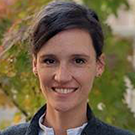The Familial Aortic Disease Clinic, located within the Mass General Thoracic Aortic Center and affiliated with the Cardiovascular Genetics Program, provides specialized care for individuals with suspected or diagnosed inherited conditions causing aortic disease.
To diagnose familial aortic disease, our team uses physical examination, cardiovascular imaging and molecular genetic testing. Proper treatment requires accurate genetic evaluation as medical and surgical decision-making is increasingly driven by genetic diagnosis.
Conditions We Treat
We specialize in treating numerous conditions, including those listed below. It is important to note that patients may experience these conditions very differently. You should speak with your cardiologist at Mass General about your particular condition to learn about a personalized treatment approach.
- Thoracic aortic aneurysm: A cardiovascular condition caused by weakening of the wall of the aorta, which can lead to an abnormal enlargement (aneurysm).
- Marfan syndrome: A genetic condition that affects the body’s connective tissue and causes a strong predisposition to aortic root aneurysm and other health conditions, such as lens dislocation (ectopia lentis), pectus defects, scoliosis, and lung collapse.
- Loeys-Dietz syndrome: A genetic condition that affects the body’s connective tissue and causes a strong predisposition to aortic aneurysm, arterial tortuosity and other health conditions, such as lung collapse, scoliosis, and bifid uvula/cleft palate.
- Vascular Ehlers-Danlos syndrome (type 4): A genetic condition that affects the body’s connective tissue and causes a strong predisposition to arterial fragility and dissection and other health conditions, such as organ rupture, lung collapse, and easy bruising
- Familial aortic aneurysm: A genetic predisposition to aortic enlargement that can be passed down in families.
- Bicuspid aortic valve with ascending aortic aneurysm (BAV/AscAA): A predisposition to develop aortic enlargement as a result of a common congenital abnormality of the aortic valve. Approximately 1% of the U.S. population has BAV.
- Spontaneous coronary artery dissection (SCAD): A spontaneous tear of one or more blood vessels of the heart.
Thoracic aortic aneurysm is a common cardiovascular condition caused by weakening of the wall of the aorta (the largest artery in the body) which is responsible for carrying oxygen-rich blood from the heart to the rest of the body. This weakening can lead to an abnormal enlargement (aortic dilation), which produces a risk of tear or “dissection”. Aortic dissection is life threatening since it can affect blood flow to vital organs, such as the heart, brain, limbs or kidneys.
Abdominal aortic aneurysm, the most common aortic disease in humans, is often associated with risk factors similar to those associated with heart attack, such as hypertension, atherosclerosis and diabetes. In contrast, thoracic aortic aneurysm is more commonly related to dysfunction of a single gene, which can sometimes be associated with an underlying syndrome that can be inherited in families.
Experienced Physicians and Genetics Expertise
The Mass General Familial Aortic Disease Clinic is structured to provide patients with comprehensive and informative care. Our experts are skilled in non-invasive evaluation of genetically triggered thoracic aortic disease. The clinic is directed by Eric Isselbacher, MD and Mark E. Lindsay, MD, PhD, who also conducts leading-edge scientific cardiovascular research at Mass General. Our clinicians are faculty of Harvard Medical School and are committed to providing expert care and establishing new best practices for the treatment and prevention of aortic dissection.
Our comprehensive care includes:
- Genetic testing and counseling
- Risk stratification and advanced cardiovascular lab testing
- Medical treatments
- Noninvasive cardiovascular imaging
- Cardiac surgical consultation









